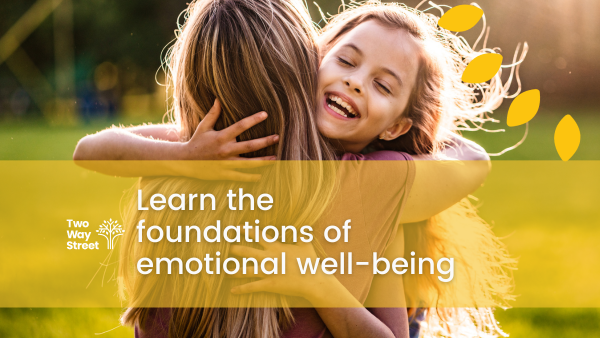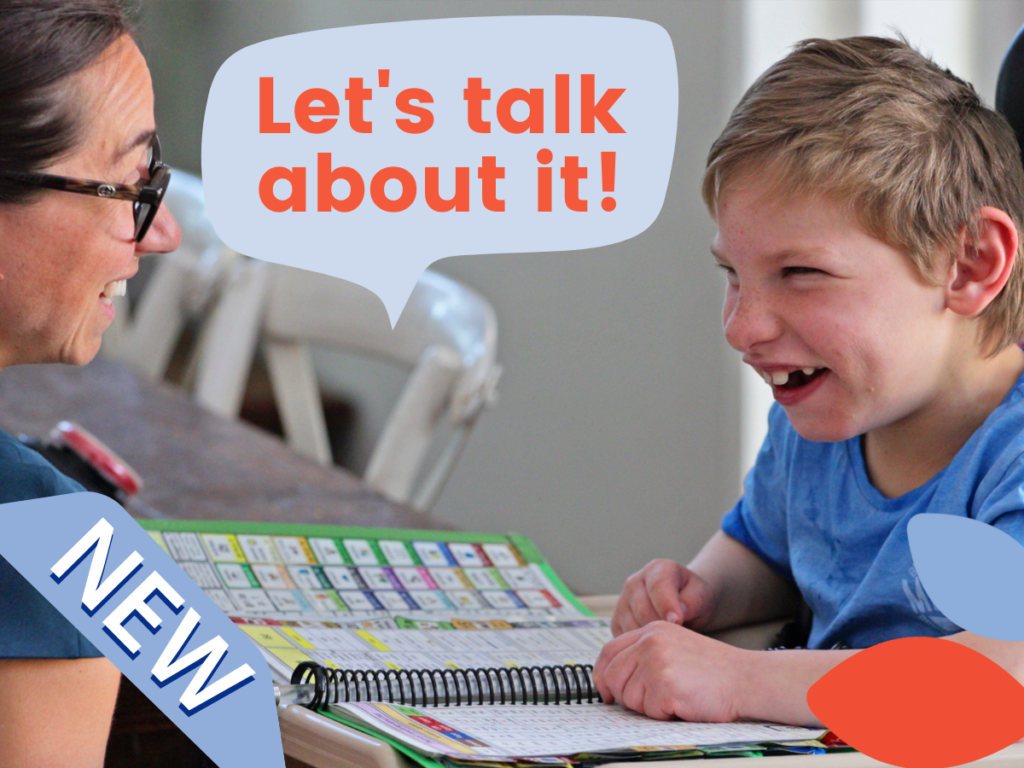AAC users9 June 2023

When you’re little, emotions are big! Think back to when you were young. Did you throw an occasional tantrum? Did you have a bad day and go over it again and again in your head? Until you eventually talked about it with someone you trust and finally felt that huge sense of relief from a problem shared… Probably.
We’ve all had a tough few years and kids have watched their world evolve in ways we could never imagine a short time ago. One of the main messages conveyed when the world was in the turmoil of a pandemic was to ‘stay connected’. We stay connected with one another through sharing stories, ideas, thoughts and even our sense of humour. And we use language to manage our emotions – to tell people how we’re feeling, to validate ourselves, to get help and to regulate ourselves.
So just imagine, you have a million thoughts in your head – some are worries about the future, some are funny stories about your day, some are wondering about what’s happening with your body… but, you need an augmentative communication system like a PODD or communication device, and maybe also a communication partner to share your thoughts clearly. You may not get the same opportunities to talk things through like your siblings or peers.
Emotional development is extremely intertwined with language development. During early years of communication, parents describe their own emotions and the emotions of their child. This ‘emotion talk’ is how we navigate our feelings and start to create our belief systems that stay with us through life. So it’s time to start talking about the important stuff with children with a communication disability, as early as possible, so they too can build a strong foundation for emotional well-being.
Just being aware that emotional development and language development go hand-in-hand is important. Think about all the things that happen in a day that can affect a child emotionally. Create a supportive environment, where you notice when your child may have had strong feelings about something. Celebrate and acknowledge those feelings when you notice them, and do that often! There may not be a response from the child yet, but it’s a great way to ensure they feel heard and can navigate those feelings. And keep talking about stuff in age appropriate ways!
Make vocabulary available. Further to that, model emotional conversations. These conversations may be about something that happened that day or what’s happening in a story you’re reading. You can also scaffold and co-construct messages, to figure out what is happening for your child and help them learn what it means to feel a certain way, how to share their feelings with others and how to indicate why they’re feeling that way.
It is crucial to encourage independent exploration and problem solving from an early age, no matter how a child communicates. Ask children to direct you when appropriate, respect preferences and begin to negotiate. Perhaps you could include your child in interviews with support workers. Any time you find yourself advocating for your child, add those messages to their communication system and show them how to advocate for themselves. Let them hear from people with lived experiences of communication difficulties. Always respect and enable privacy and authorship for anyone using AAC. Do they have the opportunity to talk privately? Can they tell you ‘don’t say that’ or ‘don’t tell anyone’? Can they clarify a message, or say ‘that’s not what I meant’?
By adopting these simple strategies, you can help your little one manage big emotions and navigate their world with confidence and resilience.
To learn more about positive emotional development in children with communication difficulties, take the FREE Two Way Street online course ‘Talking About The Important Stuff’. The course gives parents and key communication partners the skills and knowledge they need to enable meaningful conversations with their kids.

